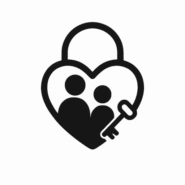RECLAIM Your Life From Alcohol and Drug Addiction
Addiction Treatment For Individuals and Couples
Addiction has a way of taking over – slowly at first, then all at once. What starts as coping or escape becomes a cycle of shame, craving, and relapse. It’s exhausting, and it can make you feel like your life isn’t your own anymore. Recovery isn’t just about “stopping.” It’s about reclaiming your system, your patterns, your boundaries, and your future. That’s where the RECLAIM framework comes in.
We don’t believe in quick fixes or empty promises. What we offer is a direct, structured approach rooted in seven keys that actually move people forward. These aren’t abstract ideas – they’re daily practices that build real momentum in recovery.
The 7 Keys of RECLAIM for Addiction Recovery
- Key 1 – Regulate Your System: Blame keeps you powerless. Responsibility gives you agency. We work on owning your part – not to fuel shame, but to build strength. This is where you start to feel capable again.
- Key 2 – Examine Your Patterns: Addiction thrives in the dark. We’ll map out the triggers, stories, and loops that keep you stuck – so you can see them clearly and stop stumbling into the same traps.
- Key 3 – Caim Responsibility: Blame keeps you powerless. Responsibility gives you agency. We work on owning your part – not to fuel shame, but to build strength. This is where you start to feel capable again.
- Key 4 – Love With Limits: Boundaries are recovery’s backbone. That means saying no to people, places, and habits that pull you back in. It also means learning how to stop betraying yourself.
- Key 5 – Author Your Story: Addiction doesn’t get to be the last word. Together, we reframe your setbacks, build resilience, and start writing a story where you’re more than your struggle.
- Key 6 – Integrate What You’ve Learned: Insight is useless if it doesn’t change behavior. This is where tools and skills get woven into everyday life – small, steady steps that actually stick.
- Key 7 – Maintain Your Momentum: Recovery is ongoing. We’ll build systems of accountability, support networks, and daily practices that keep you moving forward—especially when things get hard.
